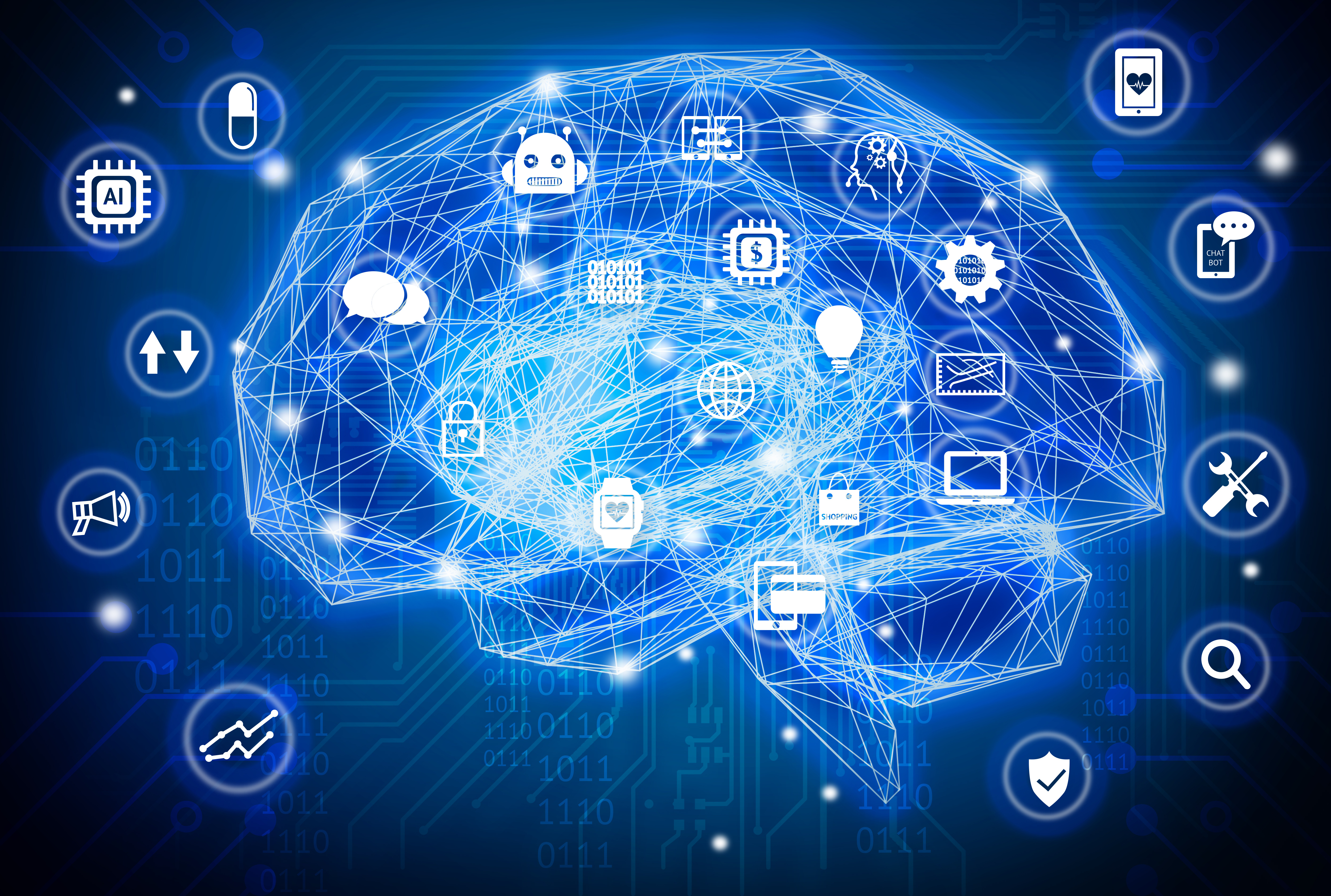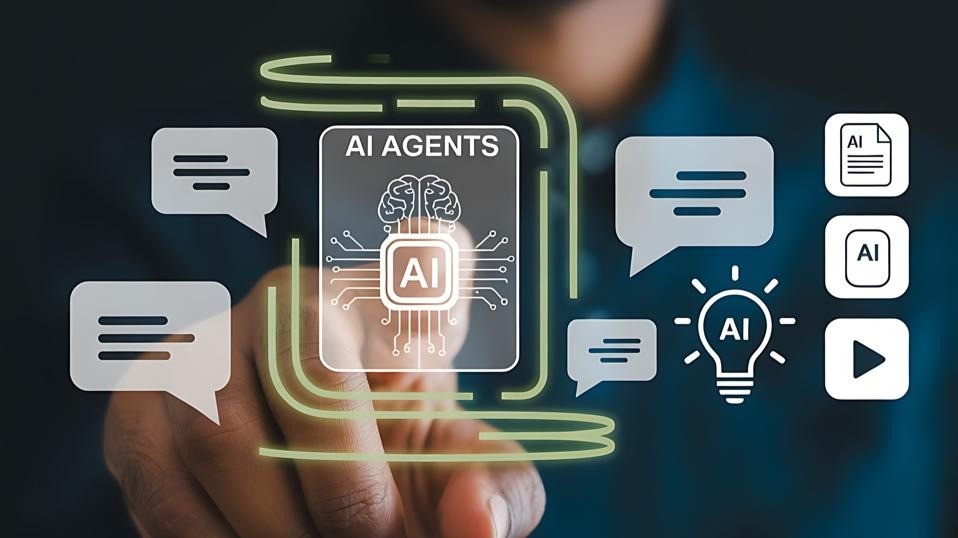How Machine Learning Will Transform The Sales Function
2 July 2021
Crying the alarm for the death of the sales professional at the hands of machine learning and artificial intelligence (AI) is a bit too dramatic. But, it’s safe to say that organisations that transform their sales functions due to machine learning and AI will find themselves rising above the competition.

Machine learning tries to teach computers to learn like a human
Now that we generate and collect vast amounts of data, we are able to give machines the amount of data that is required for them to learn by using algorithms to interpret the data and predict outcomes. When machines get feedback about whether those predictions were right or wrong, they use that feedback as learning experiences to make their predictive capabilities better in the future. Machine learning is one aspect of artificial intelligence and it is disrupting roles and responsibilities for professionals in every industry.
The power of machine learning
Never fear, sales professional. There’s a personal side to selling that machines will not (at least for a long time) be able to replace. Humans, and exemplary sales professionals in particular, are uniquely suited to listen, convince, negotiate and empathise as well as explore and answer the very critical question of “Why is this the best product or service for me.” However, the power of machine learning to contribute to successful sales initiatives cannot be understated and will only continue to grow in importance.
How machine learning will contribute to the sales function
There are many ways that companies can use machine learning in their sales process. Here are just a few of the possibilities:
Interpret customer data: Machine learning helps make sense of the data we collect about our customers. Research shows how important it is to have a “data-driven understanding” of our customers. Even though many organisations have systems and spent resources to gather and store customer data, it’s the machine learning that will now help us make effective use of that data in ways that relying on humans alone could not.
Improve sales forecasting: When you gather data on your prospect (company size, stakeholders, solutions they want) and then through machine learning have the ability to compare it to historical sales efforts, you can connect the dots and better predict what solutions would be effective and the likelihood of the deal closing and how long it will take. This insight helps sales management better allocate resources and predict sales projections.
Predict customer needs: Business success relies on how well we provide what our customers need. Machine learning can improve how responsive and proactive we are to anticipate the needs of our customers. The better we are in sales at addressing our clients’ needs before they get escalated and at suggesting a solution that could help make their life better and easier, the stronger our relationship will be. Machines won’t forget to follow-up or be too busy to proactively share solutions.
Efficient transactional sales: According to Harvard Business Review, by 2020, customers will manage 85% of their interactions with an organisation without interacting with a human. Having machines step in to handle certain sales efforts quickly and effectively can free up the human sales force to focus on the relationship.
Sales communication: There will most likely be dramatic changes to sales communication as a result of machine learning. If business communication mimics the transformation of consumer communication, the business equivalent of short-form communication such as tweets and text messages will be AI responses. Machines can quickly and easily answer queries about pricing, product features or contract terms. Within the next decade, virtual reality would allow prospects to tour a factory, “join” in to conferences and meetings with your entire team and see products being manufactured, all without leaving their own office.
Salesforce’s Einstein: We get a glimpse into the way sales functions will change by looking at the promises of Einstein, the AI solution from the CRM company Salesforce. Einstein helps sales personnel by reminding them who to follow-up with, what opportunity should be prioritised because of a high probability of conversion and help to predict the best product or service for each prospect.
Machine learning will help process the data and identify opportunities for sales personnel to act upon. Machines can take care of transactional sales to free up the human salesforce to build relationships and nurture their leads in ways only humans can. By taking care of mundane tasks for sales staff, machines clear the way for the sales process to be better and more effective.
Related Articles
The Biggest Barriers Blocking Agentic AI Adoption
By now, “smart” versions exist of just about every home appliance, gadget and gizmos we can think of. However, manufacturers continue[...]
The Marketing Metrics That Will Matter Most In The Age Of AI Agents
By now, “smart” versions exist of just about every home appliance, gadget and gizmos we can think of. However, manufacturers continue[...]
AI Agents Are Already Reshaping Business Leadership And Decision Making
By now, “smart” versions exist of just about every home appliance, gadget and gizmos we can think of. However, manufacturers continue[...]
What Is Quantum As A Service And Why Does It Matter For Your Business
By now, “smart” versions exist of just about every home appliance, gadget and gizmos we can think of. However, manufacturers continue[...]
What Is Zero Click And Why Is It Turning Marketing On Its Head?
By now, “smart” versions exist of just about every home appliance, gadget and gizmos we can think of. However, manufacturers continue[...]
What Is AI Agent Washing And Why Is It A Risk To Businesses?
By now, “smart” versions exist of just about every home appliance, gadget and gizmos we can think of. However, manufacturers continue[...]
Sign up to Stay in Touch!
Bernard Marr is a world-renowned futurist, influencer and thought leader in the fields of business and technology, with a passion for using technology for the good of humanity.
He is a best-selling author of over 20 books, writes a regular column for Forbes and advises and coaches many of the world’s best-known organisations.
He has a combined following of 4 million people across his social media channels and newsletters and was ranked by LinkedIn as one of the top 5 business influencers in the world.
Bernard’s latest book is ‘Generative AI in Practice’.










Social Media